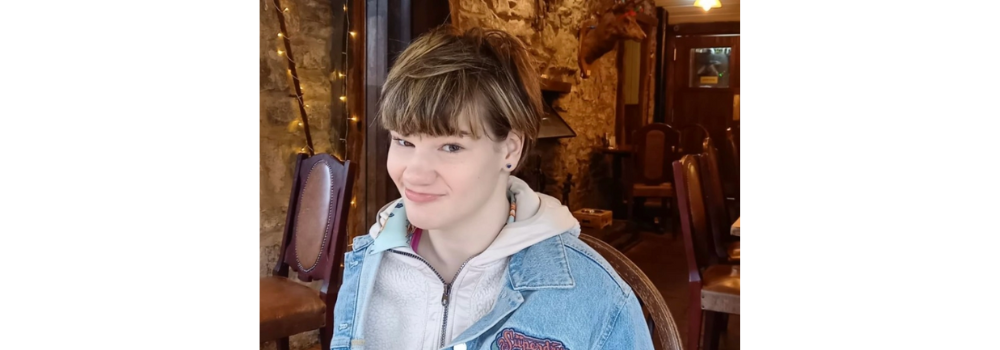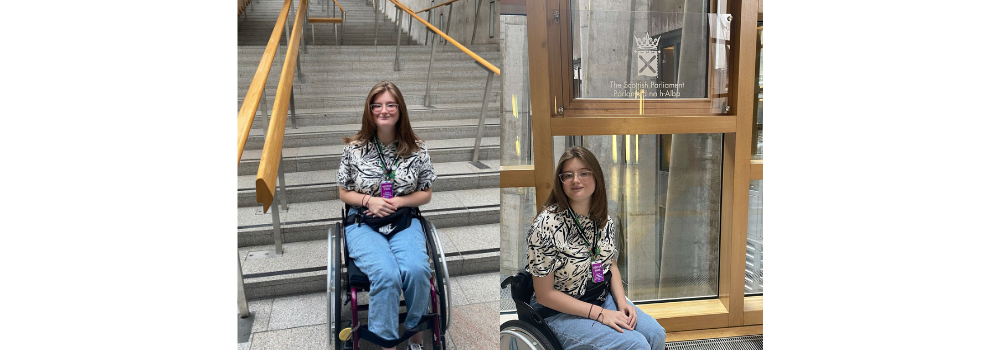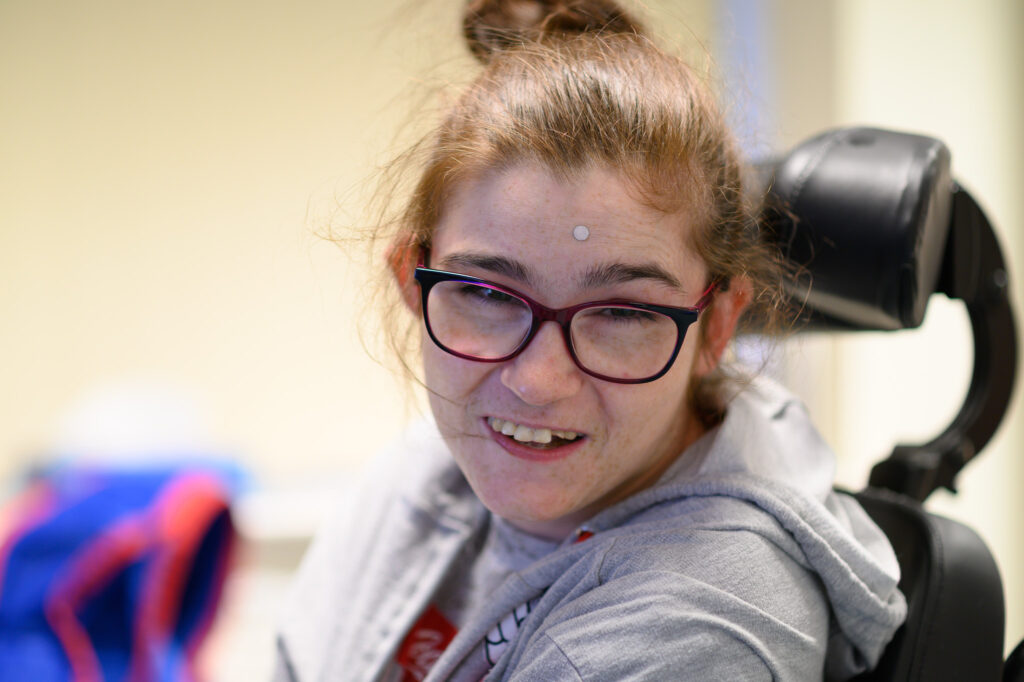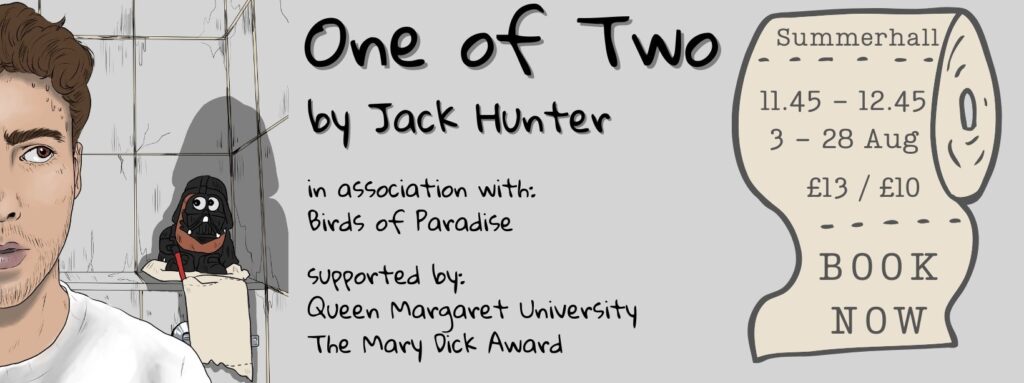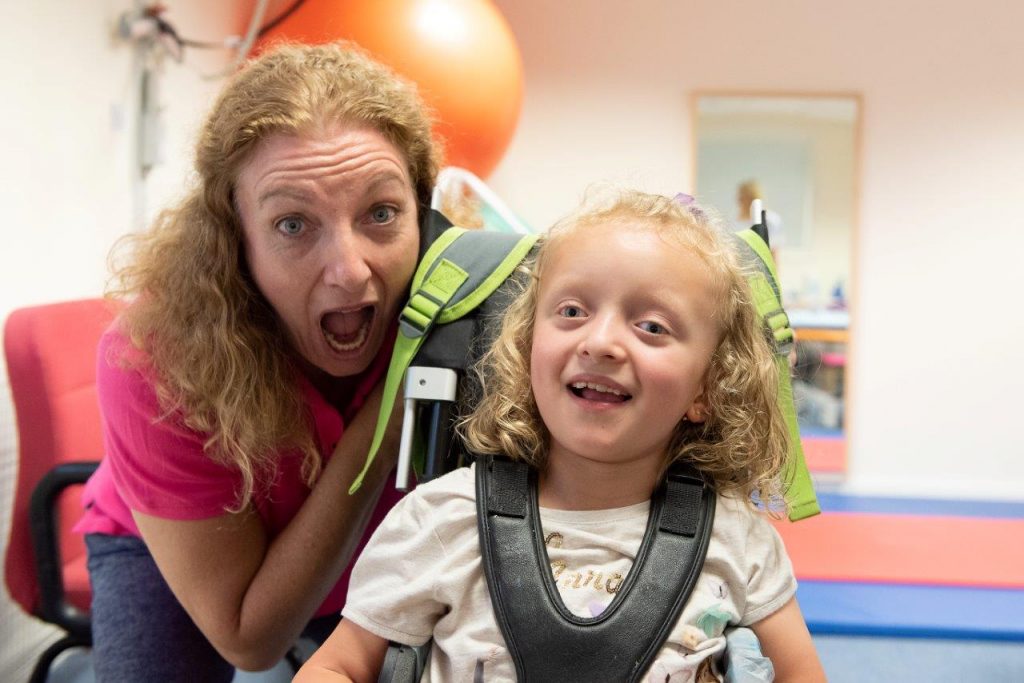As part of Cerebral Palsy Awareness month, Melissa shares how she looks after her mental and physical wellbeing as a disabled teen.
Melissa is a young author and disability activist who has cerebral palsy. Growing up, writing was the most effective way she could communicate. Melissa has her own blog called Buttons and Ramps which you can find here – https://buttonsandramps.wordpress.com
How I look after mental and physical health
Being disabled and attending mainstream school can be a lot for me sometimes and despite being a relatively happy person, I have times where I drop the ball on making sure I stay healthy. So I thought it might be helpful to share some of the things I do to keep myself both physically and mentally well.
When it comes to physical health when you have cerebral palsy it’s often hard to find the balance between doing enough activity to keep your muscles strong and taking enough rest so you don’t burn out. I find this difficult as someone who loves learning, working, sports and essentially most creative or physical activities. I’m constantly working on projects like my blog, or my social media and sometimes I forget that everything I do costs me energy. So recently I’ve been working on striking this balance by accepting the fact that sometimes I need to just say no to things; saying no to going out, to going to my usual clubs, and sometimes saying no to opportunities. Being able to understand and accept my limitations has been really valuable because it allows me to conserve energy for things I really care about and want to do.
Another thing I do to take care of my physical health is making sure I divide my time equally between being in a wheelchair and walking around. Since I spend most of my day at school in a wheelchair, I generally avoid my wheelchair outside of school. I’m extremely fortunate to be a ambulant wheelchair user and I often try to take advantage of that by picking and choosing when I’m in my chair and when I’m up and about.
I have found my mental health is much harder to take care of as a teenager with cerebral palsy. I have an amazing support network around me which makes life easier but I find that often having a physical disability takes a toll on how I manage my thoughts and feelings. As I previously referenced, my energy is really limited and this can make it hard sometimes to process everything going on which becomes stressful. I think because CP is so physical, people don’t consider the impact it has on our mental states. This as well as the social challenges and physical difficulties adds up and can ultimately be quite draining. But there are things that I have found that really help like trying to openly communicate how I feel to someone close to me just to get it out there, or taking hours out my day to just sit and watch TV and switch off. It sounds like common sense but I think people often don’t understand or downplay the mental side of being disabled.
Whether you’re disabled yourself, a parent or carer of someone disabled or even just know a disabled person, it’s important to understand how their mental and physical health may be impacted by different things and strive to be more accommodating of this.
